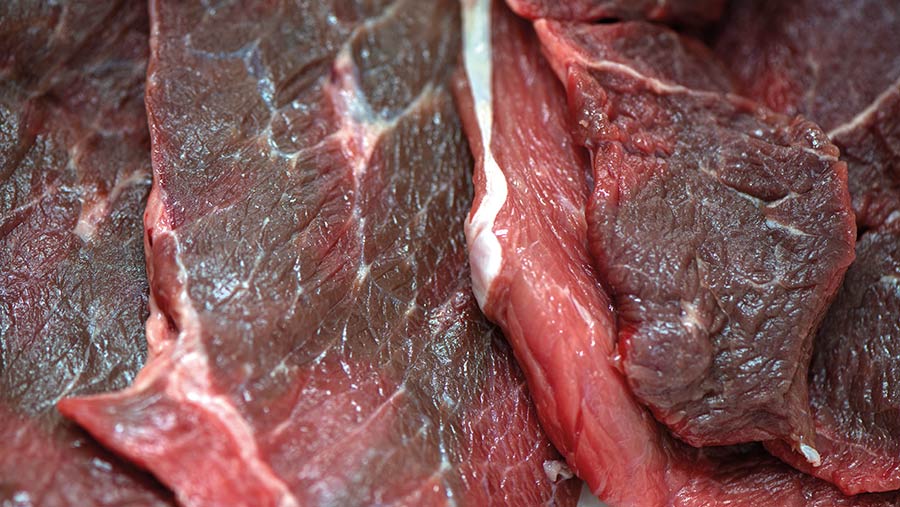Farmers Weekly meat sector clean-up campaign gains traction
 © Istock.com/ozgurkeser_
© Istock.com/ozgurkeser_ Farmers Weekly’s Meat: Our Expectations campaign is gaining traction among regulators and industry, with two of its recommendations already under active consideration.
The initiative, launched in the wake of our exclusive investigation into long-standing, industrial-scale food fraud and food safety breaches at a processor which cannot be named for legal reasons, outlined four demands to stamp out criminality in the meat sector (see below).
See also: FSA crime hotline going unanswered after meat scandal
After the publication of Farmers Weekly’s article, the Food Standards Agency (FSA) and National Food Crime Unit met industry representatives to discuss next steps.
In a follow-up letter sent to attendees by FSA chief executive Emily Miles on Tuesday (18 April), she said: “We propose to convene a working group between FSA, Food Standards Scotland [FSS], food industry trade bodies and other groups with an interest [such as the Food Industry Intelligence Network] to explore how we can make it simpler and easier for individuals to report potential concerns about unsafe or fraudulent practices in the food industry.
“This group will explore whether to set up a single whistleblowing hotline, who might administer it and how information from it might be used.”
The move comes just one week after we reported that calls to the Food Crime Confidential line, run by the FSA, were going unanswered during work hours – an issue that has now been resolved.
A further Meat: Our Expectations recommendation to monitor how much British meat is going into and out of meat processors – the total “mass balance” – is also being considered.
Working group
In her letter, Ms Miles proposed the creation of another working group between the FSA, FSS, Defra, third-party assurers and trade bodies to explore how third-party assurance can help to prevent food fraud.
“In the first instance, this group could explore the scope for more standard arrangements, like… earned recognition arrangements, which allow appropriate information to be shared with regulators,” the letter read.
“It might also be expanded to consider other ways in which audit arrangements could be strengthened – including, for example, through greater use and co-ordination of mass balance audits.
“There was appetite to explore whether mass balance audits could be used more consistently at site level, rather than for individual product lines or contracts.”
Over the coming weeks, we will be bringing together farmers, farming unions, meat processors, retailers, consumers and regulators to create a Charter For Change, building on these four recommendations to ensure standards RISE. They should be:
- Reportable: Establish an independent, short-number whistleblowing line and make it a requirement for this to be clearly displayed in factories, alongside accompanying information in multiple languages.
- Independent: Ensure an independent body can verify how much British meat is going in and out of factories – known as the mass balance – so that dilution can be identified more easily.
- Swift: Address the 15-minute gap between auditors signing into a premises and entering the factory floor.
- Electronic: Make digital record-keeping mandatory.
